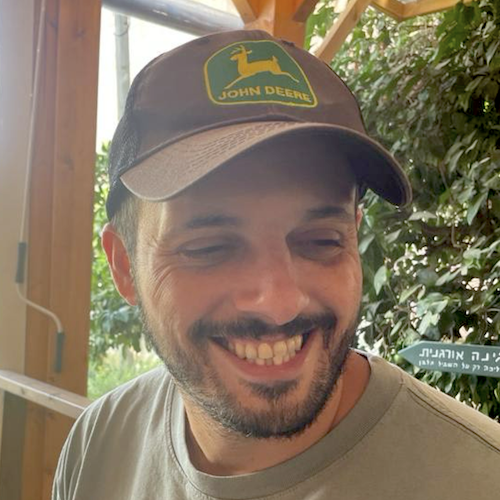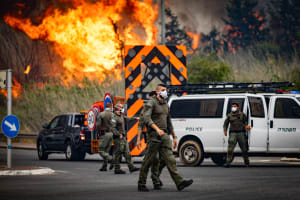5 things French President Macron must have forgotten about Israel

French President Emmanuel Macron's recent comments about Israel have raised eyebrows and sparked controversy. His statements reveal a concerning lack of understanding about Israel's history and current geopolitical realities. Let's explore five crucial aspects that Macron seems to have overlooked:
1. Israel's birth: More than just a UN resolution
Macron's assertion that Israel was "created by a decision of the UN" grossly oversimplifies a complex historical process. While the United Nations did play a role, Israel's establishment was far more nuanced and hard-fought:
The UN General Assembly passed Resolution 181 in November 1947, recommending the partition of Mandatory Palestine into Jewish and Arab states. However, this was merely a non-binding recommendation, not a legally binding creation of a state. The Arab states promptly rejected this partition plan, setting the stage for conflict.
Israel's actual birth came through a series of pivotal events:
- David Ben-Gurion's declaration of independence on May 14, 1948
- The subsequent 1948 Arab-Israeli War, also known as Israel's War of Independence
- The sacrifice and determination of Jewish fighters who defended the nascent state
As Prime Minister Benjamin Netanyahu aptly pointed out, Israel was "created by the sacrifice of the courageous fighters of its war of independence," not by a simple UN decree.
Moreover, Macron's statement overlooks crucial historical context:
- The 1917 Balfour Declaration, which supported the creation of a Jewish homeland
- The long-standing connection of the Jewish people to the land, spanning over 3,500 years
By reducing Israel's founding to a UN decision, Macron disregards the complex diplomatic efforts, military struggles, and deep historical ties that truly brought the state into existence.
2. Israel's inalienable right to self-defense
Macron's criticism of Israel's military operations in Lebanon and Gaza seems to ignore a fundamental principle of international law: a sovereign nation's right to self-defense. This oversight is particularly glaring given the ongoing security challenges Israel faces.
Hamas, recognized as a terrorist organization by France and many other countries, has a long history of attacks against Israeli civilians. The October 7, 2023 attack, which resulted in approximately 1,200 Israeli deaths and over 250 hostages taken, serves as a stark reminder of the threats Israel continually faces.
Similarly, Hezbollah in Lebanon poses a significant threat to Israel's northern border. The group has amassed a large arsenal of rockets and regularly engages in cross-border provocations.
Israel's military operations are not conducted in a vacuum but are responses to real and imminent threats to its citizens. By calling for an embargo on arms deliveries to Israel, Macron risks undermining Israel's ability to defend itself against these ongoing threats. This stance could be interpreted as indirectly emboldening groups like Hamas and Hezbollah, potentially escalating the conflict further.
3. The Euronaval exhibition controversy: A diplomatic misstep
The dispute over Israeli companies' participation in the Euronaval defense trade show highlighted a significant diplomatic blunder in France's stance towards Israel. Initially, reports suggested that Israeli companies were banned from the exhibition, which would have been a major diplomatic slight.
While French Foreign Minister Jean-Noël Barrot later clarified that Israeli companies whose equipment was not used in offensive actions in Gaza and Lebanon would be allowed to participate, the incident still raised questions about France's commitment to fair treatment of Israel in international forums.
It’s also worth mentioning that at least one French company participating in the Euronaval Euronaval defense trade show has supplied Iran's Islamic Revolutionary Guard Corps with long-range naval radar systems (170km range). The same company also provides navigation equipment to Iranian Coast Guard vessels. Nine other French companies at the exhibition are authorized suppliers to Iran's oil industry, with some having connections to Revolutionary Guard-linked organizations.
4. UNIFIL's limited effectiveness in southern Lebanon
Macron's criticism of Israel's operations near UNIFIL (United Nations Interim Force in Lebanon) peacekeepers in southern Lebanon reflects a misunderstanding of the complex situation on the Israel-Lebanon border. While UNIFIL's mandate is to monitor the cessation of hostilities between Israel and Lebanon, its effectiveness has been repeatedly questioned due to Hezbollah's continued presence and activities in southern Lebanon.
Israel has consistently stated that UNIFIL is not its target and has called for the peacekeeping force to withdraw from areas where the IDF is operating against Hezbollah. The presence of UNIFIL has not prevented Hezbollah from building up its military capabilities near the Israeli border, which Israel rightfully sees as a significant threat.
Macron's stance on this issue fails to acknowledge the limitations of UNIFIL's effectiveness in preventing Hezbollah's activities. It also overlooks Israel's legitimate security concerns and its right to take action to protect its citizens from cross-border threats.
5. France's own complex history with antisemitism
When criticizing Israel, it's crucial for French leaders to be mindful of France's own complex history with its Jewish population and antisemitism. France has a long and sometimes troubled relationship with its Jewish community, including dark chapters such as:
- The Dreyfus Affair, which exposed deep-rooted antisemitism in French society at the turn of the 20th century
- The Vichy regime's collaboration with Nazi Germany during World War II, leading to the deportation and murder of thousands of French Jews
While France has made significant efforts to confront this history and combat antisemitism, recent years have seen a concerning rise in antisemitic incidents in the country. According to the French Interior Ministry, there were 1,676 antisemitic acts recorded in France in 2023, a significant increase from previous years.
Given this context, Macron's criticisms of Israel, particularly when they appear to overlook or minimize threats to Israeli civilians, can be seen as insensitive to the concerns of Jewish communities both in France and globally. It's crucial for French leaders to approach these issues with an awareness of this historical backdrop and the ongoing challenges faced by Jewish communities.
While Macron's calls for protecting civilian lives are important, his statements and actions regarding Israel have often lacked nuance and historical context. A more balanced approach, recognizing both Israel's security concerns and the need to minimize civilian casualties, would be more constructive in addressing the complex challenges of the Middle East conflict. It's time for Macron to reassess his stance, acknowledge these overlooked aspects, and work towards building a more constructive and respectful relationship with Israel and the Jewish community.

Tolik is a Middle East analyst and media professional with extensive experience in covering regional geopolitical developments. His background spans analytical journalism, media production, and strategic communications, having contributed to major Israeli and international television networks and newspapers.














